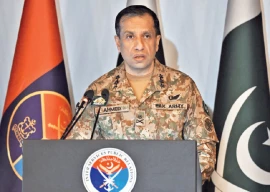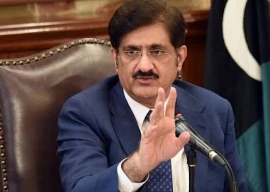
The dialogue comes after the latest US drive to win over hearts and minds in Pakistan faced quick setbacks. Pakistan, incensed by a Nato helicopter drifting into its territory and killing two Pakistani soldiers, closed the main land route for Afghan war supplies through the Khyber Pass. Adamant, Pakistan reopened the crossing only after the US apologised for the killings 11 days later. Nato officials said the incursion was an accident caused by ambiguous borders.
Speaking at Harvard University on Monday, Foreign Minister Shah Mehmood Qureshi, praised America’s flood aid, but admitted the relationship had gone “two steps back” following the helicopter attack and relentless US drone strikes.
“We are an ally, not a satellite,” Qureshi said. “We have to protect our borders – you have to respect our sovereignty.”
Qureshi said that the US and Nato must realise the political price they pay in Pakistan. “My government pays as your friend with the almost daily drone assaults on our territory. If unmanned drone attacks are not difficult enough for our people to absorb, the recent acts of Nato helicopters in Pakistan, killing Pakistani soldiers, are nothing short of infuriating,” he said.
The three-day talks will culminate on Friday as Qureshi meets US Secretary of State Hillary Clinton. Chief of Army Staff General Ashfaq Pervaiz Kayani also left for the US on Tuesday and will attend the dialogue.
Long shots
Most analysts consider such items on Pakistan’s wish-list to be long shots at a time when public mood in the US has also soured on Islamabad.
US lawmakers have repeatedly criticised Pakistan, accusing it of playing a double-game by maintaining ties with the Afghan Taliban and of showing ingratitude over US assistance in a time of austerity.
Last year, the US Congress had approved a five-year, 7.5 billion-dollar package to build schools, infrastructure and democratic institutions in Pakistan, deciding that development was the best bulwark against militancy. But public opinion in Pakistan is still low and a survey by the Pew Research Center conducted in July found that a mere 17 per cent of Pakistanis held a favourable view of the US.
However, Dan Feldman, the deputy special representative for Afghanistan and Pakistan, said he has seen a “very significant change” in Pakistani media’s portrayal of the US since the floods. Feldman voiced hope that the US can sustain the momentum.
“I think that we can showcase that we are not only there during this crisis, but there for the long-haul, and hopefully that that will change perceptions in Pakistan,” Feldman said.However, the Campaign for Innocent Victims in Conflict, a US-based group which works on behalf of war victims, warned not to underestimate the impact of drone strikes.
Christopher Rogers, who spent a year interviewing survivors in Pakistan, said that the number of civilian victims was almost certainly more than officials admitted – and that survivors received little to no help.
“The perceived legitimacy of the Pakistani state in conflict areas is key to lasting stability and security,” Rogers said. “Civilian casualties, especially when left unaddressed, do serious harm to these efforts.”
Agenda
Qureshi said the US can improve relations by taking up issues on which it has long been hesitant such as pursuing a free trade deal, discussing civil nuclear cooperation along the lines of a US pact with India, or pressuring India over Kashmir.
According to Foreign Office sources, Pakistan will adopt a decisive stance on India’s violation of the Indus River Water treaty and would demand that the US intervene.
They said that Pakistan will demand that the US establish Reconstruction Zones (RoZs) in the tribal areas and urge members of the Congress for methodical legislation on drone technology and stalled dues under the Coalition Support Fund. Agencies
Published in The Express Tribune, October 20th, 2010.
1736942026-0/fizza-(33)1736942026-0-405x300.webp)

1736941045-0/fizza-(32)1736941045-0-165x106.webp)
1736940015-0/BeFunky-collage-(53)1736940015-0-165x106.webp)


1736942257-0/Tribune-N-(5)1736942257-0-270x192.webp)


1736941269-0/sidra--(9)1736941269-0-270x192.webp)

1732012115-0/Untitled-design-(14)1732012115-0-270x192.webp)
1736844405-0/Express-Tribune-(2)1736844405-0-270x192.webp)










COMMENTS (7)
Comments are moderated and generally will be posted if they are on-topic and not abusive.
For more information, please see our Comments FAQ